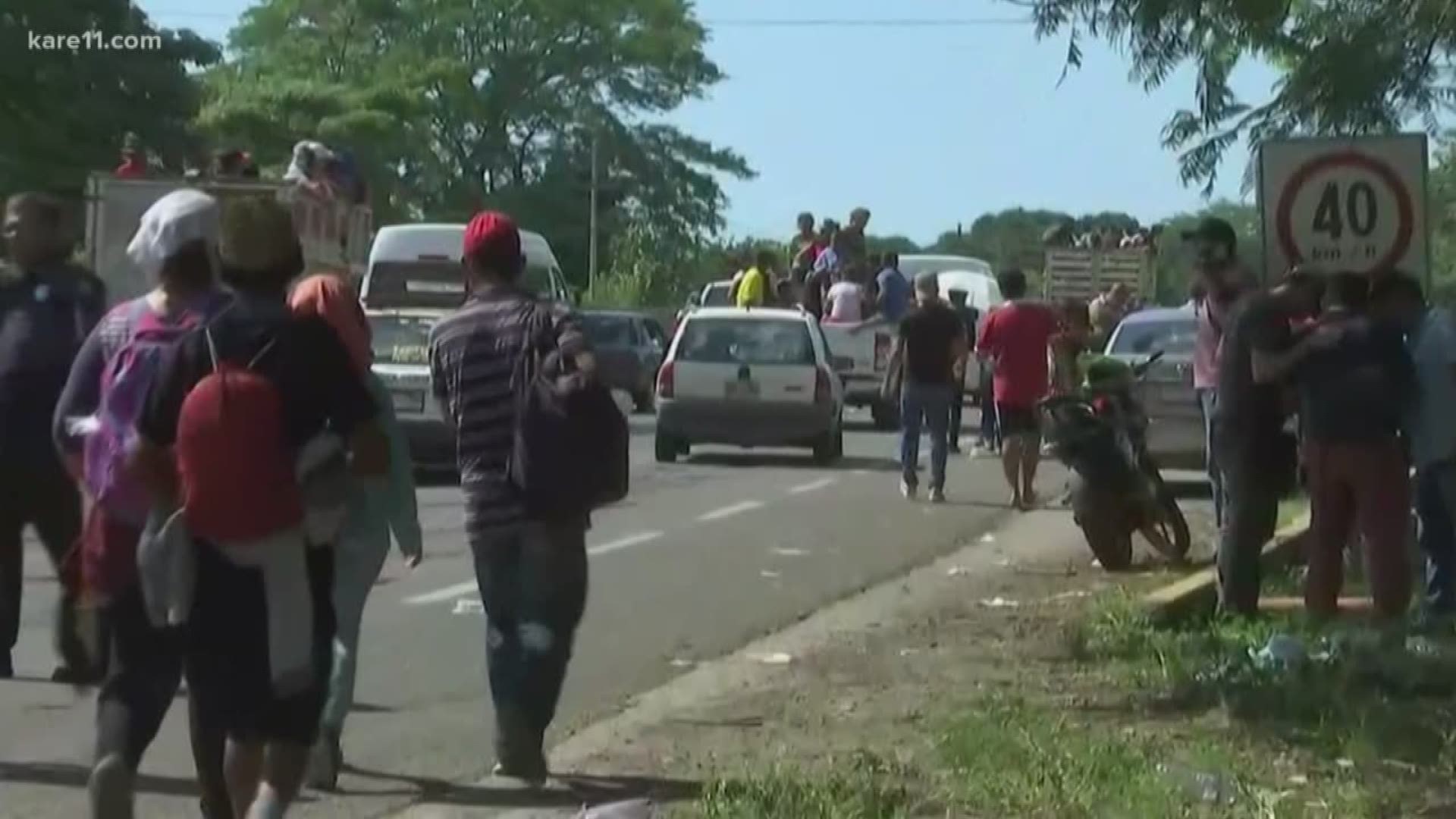MINNEAPOLIS - Doctors and nurses from the University of Minnesota are organizing a trip to Tijuana, Mexico, this winter to provide medical care for thousands of migrants from Central America.
Dr. Miguel Fiol, an associate professor of neurology, said the group is gathering funding and some supplies in anticipation of the trip, which he said could happen as early as next month.
He believes his team would be the first from the Midwest to offer medical assistance at the southern border.
"Politics aside, the human element is the big thing," Fiol said, "to treat anyone who is sick. And that's the philosophy of why we are doing this effort, to offer a hand to people that are down."
After walking as many as 2,000 miles from Honduras, Nicaragua, El Salvador and Guatemala, several thousand people are essentially stuck in northern Mexico border cities like Tijuana because the Trump administration will not allow them into the U.S. during the asylum claims process.
The policy change, according to the Department of Homeland Security, is intended to deter people from unlawfully entering the United States outside a regular port of entry. The Trump administration touts the policy as a way to streamline the backlog of asylum cases, arguing that "more attention can be focused on more quickly assisting legitimate asylum-seekers, as fraudsters are disincentivized from making the journey."
However, it can still take months or years for a person to receive a decision on an asylum claim— and no longer will they be able to stay in the U.S. during that long process.
The doctors and nurses from the U, many of whom worked together during five mission trips to hurricane-ravaged Puerto Rico, plan to assist humanitarian groups already on the ground in northern Mexico.
The long journey from Central America has also taken its toll on the overall health of many adults and children.
"The bigger issues are exhaustion and malnutrition," Fiol said. "I talked to some of the nurses there, and they said some kids have lost the bottom of their feet from walking."
Plus, as families and individuals await asylum decisions that could take months, Fiol said many are living in unsanitary shelters without access to vaccines.
"Some bad things have been discovered — (like) tuberculosis — altogether, you worry about contagion," Fiol said. "Contagion and infectious disease is a concern."
The team of medical professionals will include pediatricians to help children, who Fiol referred to as the "innocent victims."
The team will also have psychologists on hand to help migrants deal with the mental trauma of the 2,000-mile journey, as well as the lingering issues from violence and poverty back at home in Central America.
"It's a very tough situation. We just talked to a woman from Honduras, her family was threatened by a gang, her son was going to be killed because of drugs," Fiol said. "I think that's what propels all these people on the road, to find a better life."

